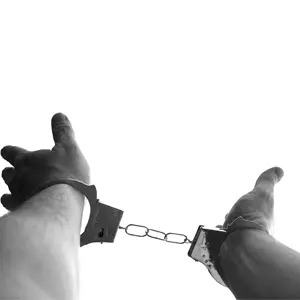If you or someone you know has been arrested for a DWI charge in New Jersey, you may be wondering what the exact fines, penalties and consequences will be if convicted. In a recent blog post, we looked at some of the laws and penalties associated with intoxicated driving in various countries around the world. Not only can fines and penalties for intoxicated driving differ from country to country, but the laws vary widely from state to state. In this post, we will examine the fines and penalties associated with a DUI / DWI conviction in the State of New Jersey.
Out of state drivers must also be aware of what their home state will do to their driving privileges if convicted of DWI. The home state is a “separate sovereign” and can impose penalties different and other assessments separate from the state where the conviction occurred.
DWI / DUI Fines & Penalties In New Jersey
In the State of New Jersey, a person is considered to be driving under the influence if that person’s Blood Alcohol Concentration (BAC) is 0.08% or higher while operating a motor vehicle. This is a “per se” offense, based on the reading alone. However, even without a reading, convictions can occur if the prosecutor can prove that a person’s driving was “deleteriously” affected by alcohol or drugs.
When a person is charged and convicted of a DWI charge, he or she will face certain penalties including fines, fees, license suspension, ignition interlock requirements, alcohol education and possible jail time. The severity of the fines and penalties for a DWI can depend on several factors including prior offenses and level of intoxication at the time of arrest. Let’s examine each of these consequences in a bit more detail.
Fines, Fees & Surcharges
All DWI convictions come with mandatory fines, fees and surcharges in New Jersey. For first time DWI offenders whose BAC is below 0.10% at the time of arrest, a fine of $250-$400 will apply. For those convicted of DWI / DUI charge with a BAC above 0.10%, a fine between $300-500 will apply. However, these fines are not the only expenses that you will incur for an intoxicated driving charge in New Jersey. In addition to standard fines, all DWI offenders must pay minimum mandatory fees and surcharges including:
- $75 to Neighborhood Services Fund
- $100 to Drunk Driving Fund
- $100 to AERF
- $230 IDRC Fee
- $1,000 Yearly Surcharge (For 3 Years) to the State
- Separate surcharge from your insurance company for 3 years (amounts vary based on the usual factors - age, marital status, type of vehicle), which can be double the State surcharge
The fees and surcharges listed above are the minimum rates for first time offenders and can be much more for those with multiple offenses.
As you can see, the expenses associated with a DWI conviction can add up quickly. In addition to the aforementioned expenses, you will also need to consider in-court and out-of-court expenses. After including all fines, fees, surcharges and court expenses, the cost of a DWI / DUI conviction can start at nearly $7,000 and may be much more depending on the specific circumstances.
License Suspension: A Costly Consequence
In addition to the expenses mentioned above, all DWI convictions in New Jersey carry a minimum license suspension of 3 months. Furthermore, those charged for DWI / DUI with a BAC of 0.10% or greater will have their license suspended for a minimum of 7 months to 1 year.
While a license suspension may seem like a mere inconvenience, this can be the most expensive part of a conviction as it can have several other financial impacts that many are not aware of. In fact, a study conducted by the New Jersey Department of Transportation (NJDOT) found that in addition to loss of personal mobility, license suspensions often leads to job loss, reduced income, increased insurance premiums and many other financial costs for New Jersey residents. Many social situations and relationships are affected by this, as well.
Mandatory Alcohol Counseling At Intoxicated Driver’s Resource Center (IDRC)
All individuals convicted of an alcohol related traffic offense in New Jersey are required to participate in an Intoxicated Driver Program (IDP) at an Intoxicated Driver’s Resource Center (IRDC). New Jersey IDRCs are responsible for educating participants about alcohol use/abuse and also determining any need for additional counseling or treatment for alcohol. The minimum requirements for first time DUI offenders is 12 hours of counseling over two consecutive days, however these are just the minimum requirements and some can receive up to 16 weeks of additional counseling.
Possible Prison Terms
Additionally, individuals convicted of a DWI charge in the State of New Jersey can face jail time. It would be unusual for a first offender to go to jail, but the statute does allow for up to 30 days in jail. Jail would occur only in extreme circumstances, such as death or significant injury resulting from the DWI.
Consequences Of Multiple DWI Offenses
The fines and penalties only get worse with multiple offenses. The “lookback” or “washout” period, which is the amount of time before a DUI charge is not counted as a prior offense, is 10 years in the State of New Jersey. In other words, if you are charged with two DUIs within a 10 year period, the first DUI will be considered a prior offense and will come into play when determining the consequences. If offenses are committed 10 years and 1 day apart, that second offense would be treated as a first. If a third offense occurs 10 years and 1 day apart, second offense penalties would apply.
In addition to increased fines, second and third convictions typically come with longer license suspensions, more alcohol counseling and increased jail time. In fact, a second DWI / DUI conviction carries mandatory jail time of 48 hours and can be up to 90 days. Additionally, those convicted of a second DUI are required to complete between 30 days of community service.
Third offense penalties are extremely serious: 10 year loss of license and 180 days jail, mandatory. Even though the jail term is “mandatory”, there are ways to avoid jail.
Installation of Ignition Interlock Device
An ignition interlock device (IID) is essentially a breath testing device that is installed in the dashboard of the vehicle. When installed, these devices prevent the engine of a vehicle from starting if the driver registers a BAC above the programmed limit after blowing into the device. In New Jersey, that programmed limit is 0.05%.
A first time DWI offense in which a person is arrested with a BAC of 0.15% or higher will require a mandatory installation of an ignition interlock device throughout the entire license suspension period and for up to a year after the license has been restored. Additionally, all second and third DUI offenses come with mandatory installation of an ignition interlock device during the license suspension and from 1 to 3 years after the license suspension.
What Should I Do After A DUI Arrest In New Jersey?
Many individuals who are arrested for a DWI in New Jersey believe that nothing can be done to fight the charges and as a result, they submit to all of the fines and penalties for a DWI conviction. This should not be your approach! There are many things that can be done to defend against your intoxicated driving charge. DWI cases are winnable. In fact, many factors can affect the legitimacy of the arrest, including the vehicle stop and road-side testing process, as well as the accuracy of the breath, blood or urine tests.
You deserve to know your rights and legal options after a DWI arrest. If you or a loved one have been charged with a DWI / DUI in the State of New Jersey, contact the experienced attorneys at Levow DWI Law, P.C. today. We are dedicated to representing those arrested for driving while intoxicated and fighting to defend their legal rights.



